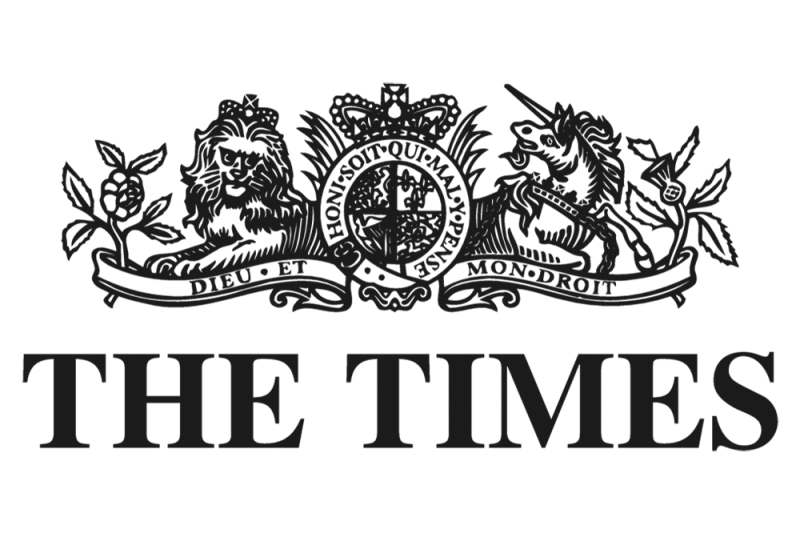Effective crisis communications and reputation management are essential when looking to protect your public profile in the eyes of existing customers, prospective clients and key stakeholders.
In today's ever-vigilant public and media environment, businesses in the UK are increasingly vulnerable to adverse events. From allegations of misconduct to regulatory breaches and operational disruptions, the potential for a crisis is always present.
Effective crisis communication is crucial for managing these situations and protecting your reputation. Our comprehensive crisis communications service is designed to support businesses through every stage of a crisis, mitigate harm to your reputation, and help you recover as quickly as possible.
I continue to be impressed by the innovative ideas Will and his team have deployed to promote the core principles that drive ViewsHub. I have no hesitancy in recommending Bridgehead.
We have extensive experience in dealing with a range of crises businesses face, including:
• Allegations of misconduct or malpractice • Regulatory breaches or non-compliance • Operational disruptions or public health incidents • Negative inspection or audit reports • Financial instability or bankruptcy • Change of ownership or leadership • Legal issues involving customers or employees • Data breaches or cyber attacks • Employee disputes and industrial action
Our Service Offerings
We provide a comprehensive suite of crisis management services tailored to your specific needs. Our support covers proactive planning to prepare for potential issues, real-time management to respond effectively when challenges arise, and post-crisis strategies to rebuild and strengthen your reputation.
Crisis Planning
Risk Assessment: In-depth analysis of potential risks and vulnerabilities unique to your sector.
Crisis Communication Plan: Custom development of a crisis communication plan, including strategic messaging, protocols, and essential contact lists.
Training Workshops: Interactive workshops to equip your staff with advanced crisis management and communication techniques.
Simulation Exercises: Engaging crisis simulation drills to test, refine, and enhance your crisis response strategies and ensure full preparedness.
Crisis Management Services
24/7 Crisis Hotline: Instant, round-the-clock access to our crisis communication specialists, offering expert guidance and support whenever a crisis arises.
Rapid Response Team: Immediate deployment of a specialised crisis response team, led by our Managing Director, William Walter, to handle all communications and media relations during the crisis.
Media Relations: Strategically crafting and disseminating press releases, conducting press conferences, and managing media inquiries to effectively control the narrative.
Social Media Management: Real-time monitoring and proactive management of social media channels to address concerns, correct misinformation, and actively engage with your audience.
Stakeholder Communication: Strategic engagement with key stakeholders, including customers, employees, regulatory bodies, and the public, ensuring transparency and fostering trust throughout the crisis.
Post-Crisis Reputation Management
Reputation Recovery Plan: Crafting a strategic blueprint to restore and elevate your organisation's reputation after a crisis.
Positive Publicity Campaigns: Developing and promoting uplifting stories and achievements to counteract negative media coverage.
Online Reputation Management: Deploying tactics to enhance online reviews and search engine results, ensuring positive content dominates.
Stakeholder Engagement: Sustained interaction with stakeholders through newsletters, community events, and regular updates to rebuild trust and loyalty.
Media Training: Offering ongoing media training for staff to effectively manage future interactions with the press and maintain a positive image.
Both [Will] and his team are professional and deeply knowledgeable in their understanding of the media. They are creative in leveraging their media relationships.
Additional Support Services
Internal Communication: Ensuring clear and consistent communication within your organisation to keep staff informed and aligned.
Legal Liaison: Collaborating with legal advisors to ensure all communications are compliant with regulatory and legal requirements.
Crisis Documentation: Maintaining detailed records of all actions taken during the crisis for accountability and future learning.
Evaluation and Reporting: Conducting a thorough post-crisis evaluation to identify strengths and areas for improvement, and providing a comprehensive report.
Our team of seasoned crisis communication professionals is committed to guiding you through challenging times, ensuring your organisation can continue to operate smoothly while maintaining public trust and confidence. Let us assist you in effectively preparing for, managing, and recovering from crises, so you can maintain your high standards and reputation.
We are passionate about PR
Read about two of our success stories:
Avealto – When British start-up Avealto faced a high-profile trademark dispute with Airbus, we delivered a targeted crisis communications campaign to protect its reputation and rally support. Positioning the conflict as a post-Brexit challenge to UK innovation by a European corporate giant, we emphasised Avealto’s economic and technological value. Through strategic media advocacy and direct political engagement, we secured an exclusive in The Times, followed by extensive coverage and CEO interviews. In total, our work generated 10 high-impact media pieces reaching over 426,000 readers, applying sustained public and parliamentary pressure on Airbus. Read more.
Baker Dearing Educational Trust – We worked with the Baker Dearing Educational Trust to reshape public and sector perceptions of University Technical Colleges (UTCs) and provide crisis communications support when needed. Our campaign promoted major initiatives, including the UTC Sleeves model and a landmark NHS partnership to train 30,000 digital health professionals by 2030, while countering outdated negative narratives. We secured high-profile coverage across national, sector, and trade media, engaged key stakeholders, and showcased UTC success stories to potential partners. When Watford UTC closed, we coordinated all stakeholder communications and managed media relations to protect the reputation of the wider UTC network. Read more.
Further Reading
Forbes - 3 Crisis Communication Lessons To Learn From Adobe's Recent Response
In early June, Adobe faced significant backlash from creative professionals due to changes in its terms of service. Adobe's handling of the situation offers key lessons in crisis communication: First, acknowledge the issue promptly. This step is vital as it shows that the company is listening and taking user concerns seriously. Second, clarify and commit to improvement. Swiftly addressing misconceptions is crucial to maintaining trust and preventing misinformation. Third, monitor feedback and respond appropriately.
The Conversation - Crisis communication saves lives but people with disability often aren’t given the message
In times of crisis like pandemics, bushfires, or floods, timely and high-quality safety information is essential, especially for people with disabilities. However, recent events have shown that accessible information for this group is often delayed and insufficient. Clear national legislation and reliable funding for accessible information providers are crucial.
Digital Health - Crisis communications: how to cope when the NHS is held to ransom
Building a reputation in health tech takes decades, but a single crisis can undo it. Effective crisis communication is crucial. Organisations should be prepared with a crisis communications plan, which includes stakeholder mapping, predefined roles, and clear communication protocols. Holding statements should be ready, and internal communications should be clear to prevent leaks.

























